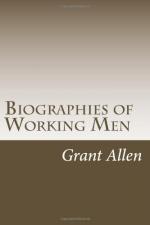Immediately on his return, the speech-making schoolmaster was met by a very sudden and unexpected request that he would allow himself to be nominated for the State legislature. Every state of the Union has its own separate little legislative body, consisting of two houses; and it was to the upper of these, the Senate of Ohio, that James Garfield was asked to become a candidate. The schoolmaster consented; and as those were times of very great excitement, when the South was threatening to secede if a President hostile to the slave-owning interest was elected, the contest was fought out almost entirely along those particular lines. Garfield was returned as senator by a large majority, and took his seat in the Ohio Senate in January, 1860. There, his voice was always raised against slavery, and he was recognized at once as one of the ablest speakers in the whole legislature.
In 1861, the great storm burst over the States. In the preceding November, Abraham Lincoln had been elected President. Lincoln was himself, like Garfield, a self-made man, who had risen from the very same pioneer labourer class;—a wood-cutter and rail-splitter in the backwoods of Illinois, he had become a common boatman on the Mississippi, and had there improved his mind by reading eagerly in all his spare moments. With one of those rapid rises so commonly made by self-taught lads in America, he had pushed his way into the Illinois legislature by the time he was twenty-five, and qualified himself to practise as a barrister at Springfield. His shrewd original talents had raised him with wonderful quickness into the front ranks of his own party; and when the question between the North and South rose into the region of practical politics, Lincoln was selected by the republicans (the antislavery group) as their candidate for the Presidency of the United States. This selection was a very significant one in several ways; Lincoln was a very strong opponent of slavery, and his candidature showed the southern slave-owners that if the Republicans were successful in the contest, a vigorous move against the slave-holding oligarchy would at once be made. But it was also significant in the fact that Lincoln was a western man; it was a sign that the farmers and grangers of the agricultural west were beginning to wake up politically and throw themselves into the full current of American State affairs. On both these grounds, Lincoln’s nomination must have been deeply interesting to Garfield, whose own life had been so closely similar, and who was destined, twenty years later, to follow him to the same goal.




